

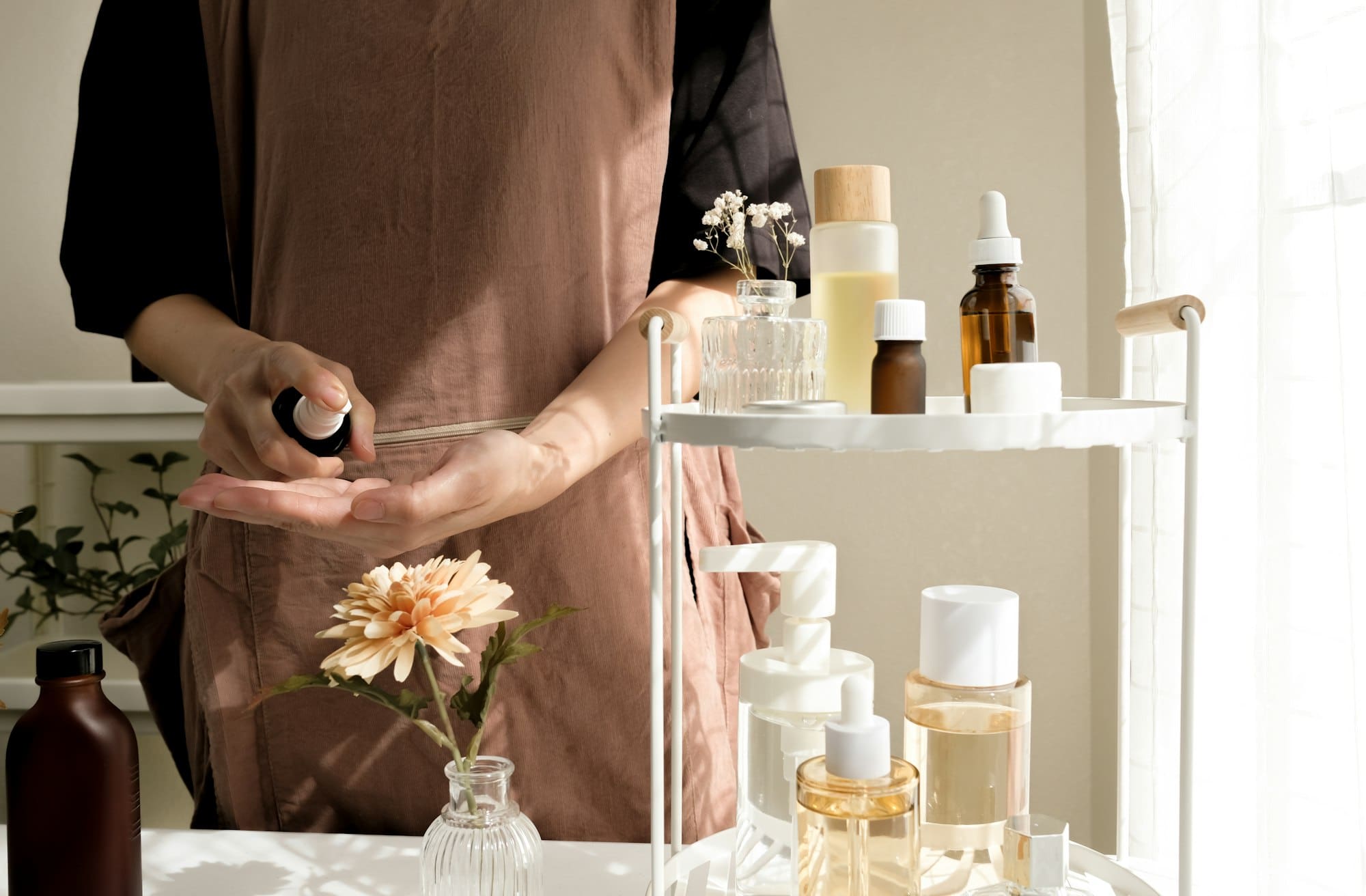
Self-care isn’t just a trendy buzzword; it’s an essential part of maintaining your overall well-being. From mental health to physical fitness, implementing a consistent self-care routine can profoundly influence your quality of life.
Whether you’re an experienced self-care enthusiast or a complete novice, understanding the key components of a successful self-care routine can help you foster a more balanced and fulfilling lifestyle.
“Taking care of yourself doesn’t mean ‘me first,’ it means ‘me too.’”
In this article, we will explore the essential elements of self-care, offering practical tips and insights to help you create a personalized routine. From setting boundaries to prioritizing your mental health, let’s dive into how you can start making self-care a pivotal part of your daily life.
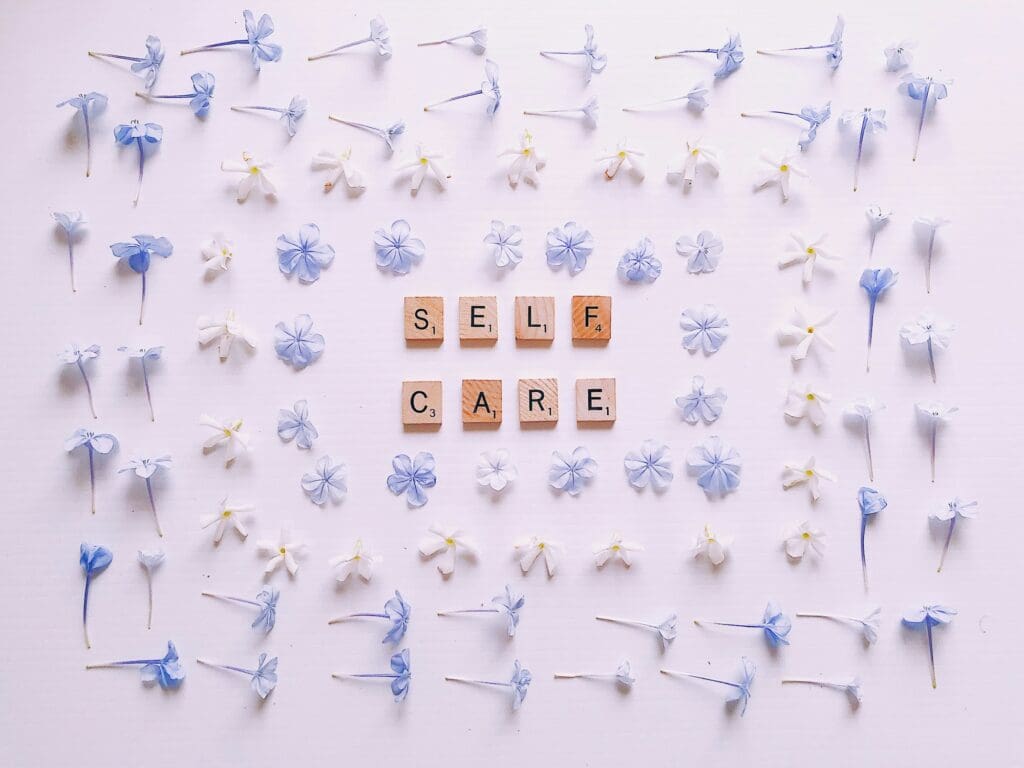
Self-care isn’t just a trendy buzzword. It’s a critical foundation for living a balanced, thriving life. In our fast-paced world, it’s easy to get caught up in the whirlwind of daily responsibilities and forget to prioritize our own well-being.
Taking time for self-care, however, can have profound impacts far beyond a moment of relaxing indulgence. It is integral to promoting health, preventing disease, and effectively coping with stress and illness.
By consciously dedicating time to self-care, you’re investing in your future self. This act fosters resilience, boosts your mood, and helps you maintain a sense of balance amidst the chaos.
Regular self-care increases your lifespan by promoting healthy functioning across all aspects of your life, be it physical, emotional, or social. Additionally, self-care can enhance happiness and confidence by helping you feel more in control of your life and better equipped to handle everyday challenges.
It’s also worth noting that self-care looks different for everyone. Whether it’s a morning jog, cooking a nutritious meal, practicing mindfulness, or simply taking a break to read a favorite book, self-care activities should be tailored to your individual needs and preferences.
This personalized approach ensures that your self-care routine is both effective and enjoyable, thereby maximizing its benefits.
Ultimately, self-care is about making a conscious decision to prioritize yourself. It’s not selfish; it’s essential. By taking care of yourself, you are better prepared to take on the world and support those around you. So, let’s dive deeper into how you can identify your self-care needs and incorporate them into your daily life.
Self-care begins with understanding what you need to feel your best. It’s not a one-size-fits-all approach. Everyone’s self-care needs are different, so it’s essential to take the time to assess what areas of your life require attention.
Assess Your Current Habits: Start by evaluating your daily routines. Think about what you’re already doing for self-care and what you might be neglecting.
Are you getting enough sleep? Eating well? Incorporating exercise into your routine? Sometimes, it’s helpful to keep a journal to track your activities and identify patterns that affect your well-being.
Listen to Your Body and Mind: Pay close attention to how you feel both physically and emotionally. Feeling constantly tired, stressed, or anxious can be indicators that you need to adjust your self-care practices.
Similarly, tuning into moments when you feel energized and happy can provide clues about what activities are beneficial for you. Your body and mind are your best guides.
Reflect on Your Needs: Everyone has different self-care needs based on their lifestyle, personality, and current life circumstances. Take some quiet time to reflect on what specifically you need to recharge.
Do you need more social interaction or solitude? Are you craving creative outlets or physical activity? Understanding these needs can help you tailor a more effective self-care routine.
By taking these steps, you can identify the key elements that will make up your personalized self-care strategy. This foundational understanding makes it easier to incorporate meaningful activities into your daily life.
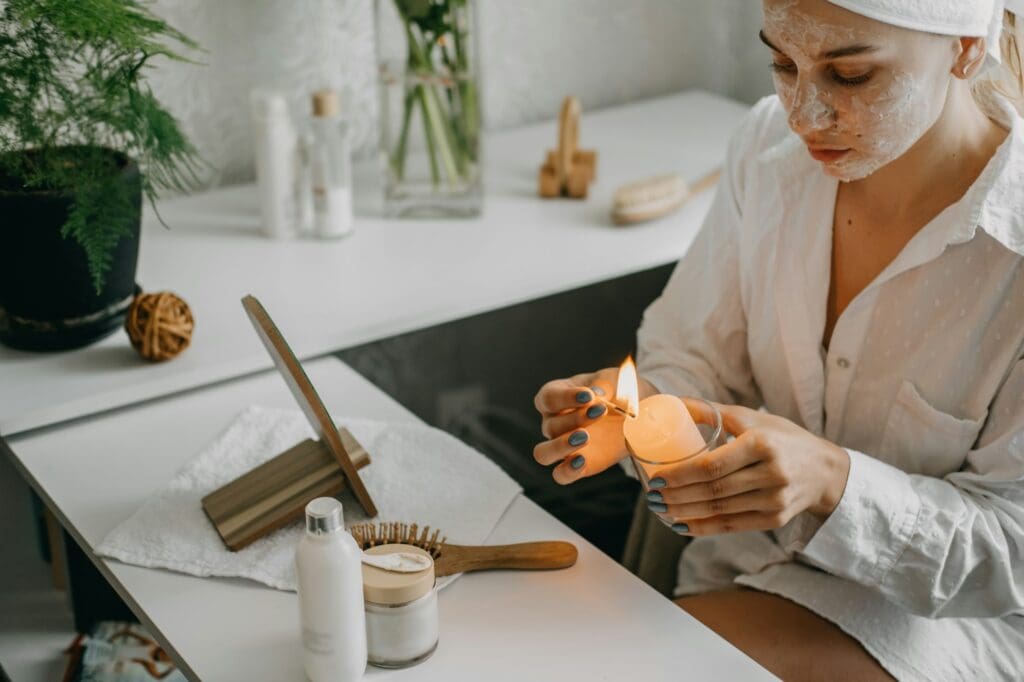
Technology, often seen as a source of stress, can actually be a valuable tool in your self-care arsenal. Leveraging apps and digital resources allows you to tailor your self-care routine to fit seamlessly into your busy life.
Meditation and Mindfulness Apps: These apps guide you through mindfulness practices, helping you focus, reduce stress, and enhance overall well-being. Popular choices like Headspace and Calm offer guided meditations, sleep stories, and mindfulness exercises that can be easily integrated into your daily routine.
Fitness and Health Trackers: Wearable technology, such as Fitbit or Apple Watch, not only tracks your physical activity but also monitors sleep patterns and heart rates. These insights enable you to make informed decisions about your physical health, motivating you to stay active and get adequate rest.
Customized Self-Care Plans: Apps like Aloe Bud or Fabulous allow you to create personalized self-care routines. These apps send reminders and encouragements for activities like drinking water, taking breaks, or practicing gratitude, helping you to maintain a balanced lifestyle.
Virtual Therapy and Counseling: Platforms like BetterHelp and Talkspace offer accessible mental health support by connecting you with licensed therapists through video calls, chats, or phone sessions. This approach makes it easier to integrate mental health care into your routine without needing to leave your home.
Social Connection: Technology makes staying in touch with loved ones more convenient than ever. Use video calls, messaging apps, and social media to maintain and strengthen relationships, fostering a sense of community and support.
By thoughtfully integrating these digital tools, you can transform technology from a potential stressor into a powerful ally in your self-care journey. Remember, it’s about making these tools work for you, not the other way around.
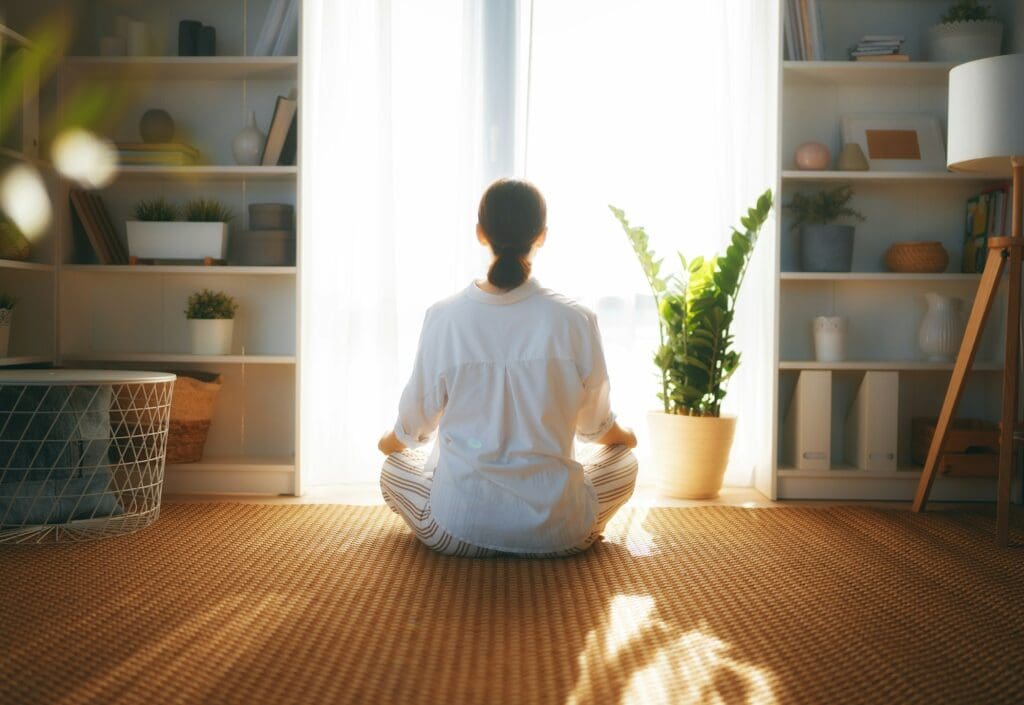
Overcoming obstacles in self-care often requires understanding first what those barriers are. Many individuals face challenges such as lack of time, guilt over prioritizing oneself, or simply not knowing where to begin. These hurdles can be addressed with a few strategic approaches.
1. Lack of Time: One of the most common obstacles is feeling like there’s no time for self-care. Solution: Schedule self-care as you would any other important appointment. Start with small, manageable chunks of time, such as five minutes of meditation or a short walk during your lunch break. Gradually, you’ll find it easier to allocate more time as you feel the benefits.
2. Guilt: Many people struggle with the idea of taking time for themselves, feeling that they’re being selfish. Solution: Reframe your thinking by understanding that self-care is not indulgent but necessary for your well-being. When you take care of yourself, you’re better equipped to care for others.
3. Lack of Awareness: Not knowing what activities constitute self-care can be a significant barrier. Solution: Explore and experiment with various self-care practices until you find what works best for you. This might include physical activities, hobbies, socializing with friends, or exploring spiritual practices.
4. Consistency: It’s easy to start a self-care routine but challenging to maintain it. Solution: Create a self-care plan and set realistic, achievable goals. Track your progress and celebrate small victories to stay motivated.
Remember, overcoming these obstacles is a process, and it’s okay to seek support from friends, family, or professionals. The most important step is to acknowledge these challenges and address them with practical strategies. Your self-care is a priority and deserves the attention you give to other aspects of your life.
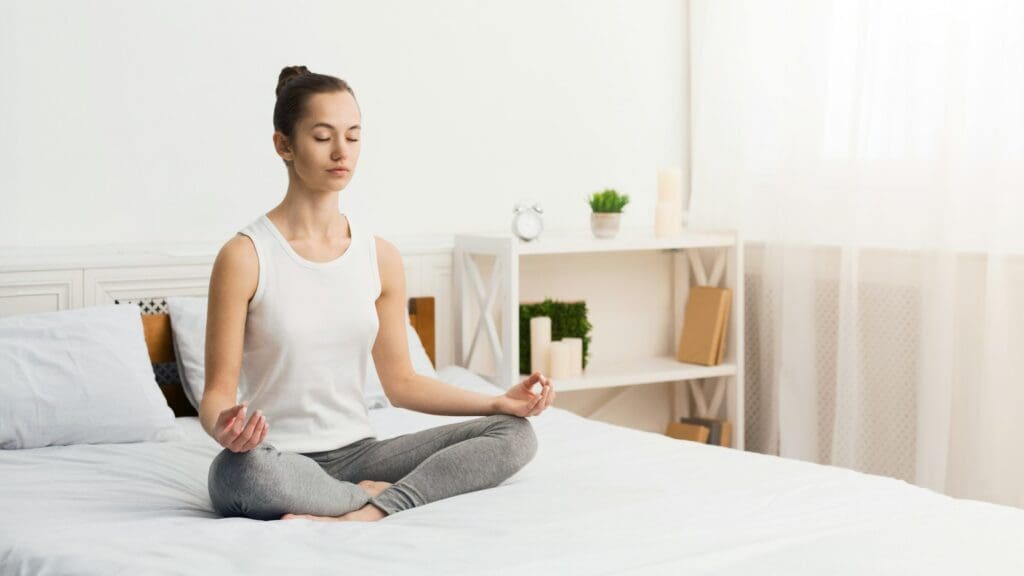
The frequency of self-care practice varies greatly from person to person. Ideally, you’ll want to incorporate some form of self-care into your daily routine to maintain mental and physical well-being.
This could mean taking a few minutes each day for meditation, exercise, or reading. However, larger self-care activities, like spa days or hiking trips, might only be feasible once a week or even monthly.
The key is consistency and making self-care a regular part of your life to avoid burnout and promote overall balance.
To make your self-care routine more effective, start by personalizing it to fit your unique needs and lifestyle. Identify what truly benefits you physically, emotionally, and mentally.
Next, set realistic and achievable goals—small steps lead to sustainable habits. Incorporate a variety of activities to keep things interesting; mix physical activities like exercise with mental practices like meditation. Also, leverage technology where appropriate, such as using apps for guided meditation or workout plans.
Remember, consistency is key, so schedule your self-care just as you would any important appointment. Lastly, don’t forget to periodically reassess and adjust your routine to keep it aligned with your evolving needs and circumstances. Consistent, mindful adjustments ensure that your self-care routine remains effective and enjoyable.
Absolutely, a well-crafted self-care routine can significantly enhance mental health. Engaging in regular self-care activities helps reduce stress, alleviate anxiety, and improve overall mood.
When you consistently take time to recharge and focus on your well-being, it lays the foundation for better emotional resilience and stability. Activities like meditation, mindful breathing, and physical exercise stimulate the release of endorphins, which are natural mood lifters.
Additionally, ensuring you get enough sleep and maintaining a balanced diet directly contributes to your mental clarity and overall emotional health. Incorporating social self-care, such as spending time with loved ones or joining supportive communities, also boosts feelings of connection and belonging, further promoting mental well-being.
Absolutely! Self-care doesn’t need to take up much time to be effective. Here are some quick practices you can integrate into your busy schedule:
Even if you’re busy, small acts of self-care can make a big difference in maintaining your well-being.
Self-care doesn’t have to break the bank. There are plenty of budget-friendly activities to help you take care of yourself. Here are a few ideas:
Embracing these simple, cost-effective activities can make a significant positive impact on your well-being without causing financial stress.
Building a successful self-care routine is an ongoing journey that evolves with your changing needs and circumstances. It’s about consistently carving out time for yourself and prioritizing your own well-being.
Remember, there’s no one-size-fits-all approach. What matters most is that your routine resonates with you personally and brings a sense of peace and balance into your life.
As you embark on this journey, be kind to yourself. Progress might be slow at first, and that’s perfectly okay. The key is to stay committed and be adaptable.
Whether it’s through exercise, implementing healthy eating habits, or engaging in spiritual practices, each small step contributes significantly to your overall well-being.
By integrating self-care into your daily routine, you’re not just enhancing your own health and happiness, but also improving your ability to support and connect with others. It’s an investment in yourself that yields long-term benefits, fostering a more balanced, fulfilling life.
So take a deep breath, reflect on what you need, and begin crafting a self-care routine that’s uniquely yours. You deserve it!









